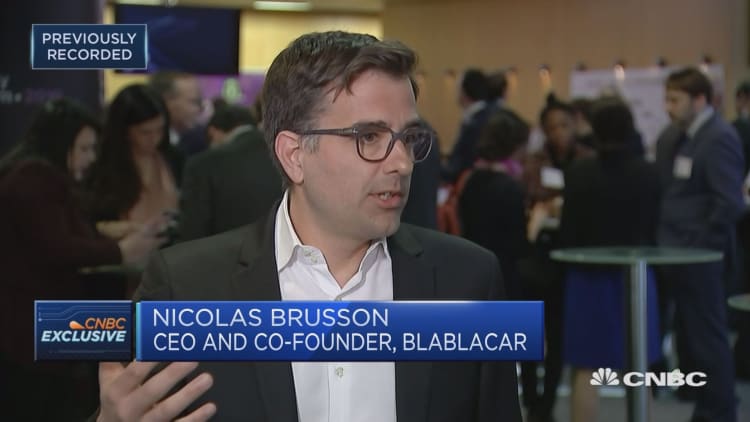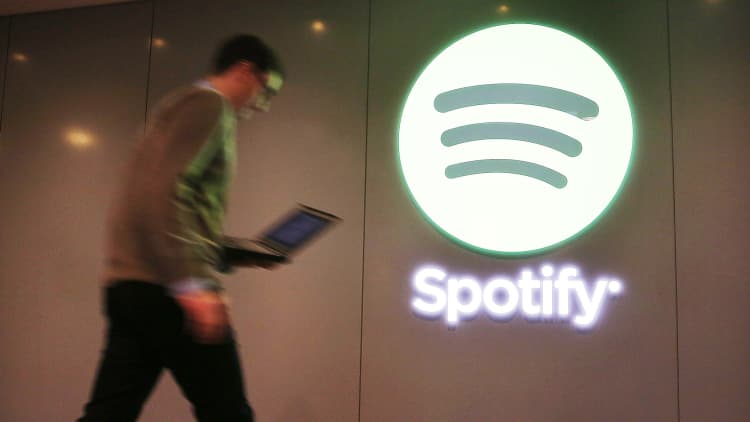
Lyft and Uber are stealing the spotlight in the global ride-hailing market with massive upcoming initial public offerings – and that doesn't bother their European rivals.
At the Goldman Sachs Disruptive Technology Symposium in London this week, European ride-hailing and carpooling start-ups said they will be closely watching Uber and Lyft's highly-anticipated IPOs but added they are more focused on profitability than their U.S. counterparts.
"You need to be much more focused on operations and costs, which is not something that comes very naturally to most Silicon Valley companies, so I think that's where we have a big edge," said Markus Villig, CEO of Estonian ride-hailing firm Bolt, formerly called Taxify, in an interview with CNBC from the conference Tuesday.
Lyft is expected to start trading publicly on the Nasdaq on Friday at a valuation of roughly $20 billion, but the company, like its archrival Uber, has yet to make money. Lyft's IPO prospectus revealed a $911 million net loss in 2018, while Uber reported even heftier adjusted losses of $1.8 billion during that period.
Tech companies like Uber and Lyft have been able to prioritize growth over profits thanks to abundant funding in private markets. Some investors aren't convinced the same strategy will work once the companies go public.
You need to be much more focused on operations and costs, which is not something that comes very naturally to most Silicon Valley companies.Markus VilligCEO of Estonian ride-hailing firm Bolt
"Uber will have to demonstrate profit in the future," said Bernard Liautaud, managing partner at London-based venture capital firm Balderton Capital, in an interview Tuesday.
European ride-hailing and carpooling start-ups that haven't benefited from as much private funding as their U.S. rivals are taking a different tact. Villig said Bolt has spent less than $100 million since the company launched in 2013. It currently operates in 30 countries across Europe and Africa with 25 million users, a number its ambitious CEO hopes to turn into a "billion."
"Our case has been always very focused on how do we be as frugal as possible with every dollar we spend," Villig said.
Bolt reached a $1 billion valuation last year, making it one of Europe's rare tech unicorns. Villig said an IPO is "definitely on the table" in the long-term but confirmed it's unlikely to happen over the next one to two years.

Jochen Engert is the founder and CEO of Flixbus, a German Uber-like start-up that manages long-distance bus and coach rides. In an interview with CNBC, Engert said the company should go public "at some point" but added no imminent plans are in place.
Flixbus is profitable in more-than-half of the 29 markets where it operates, Engert said, adding the company hasn't "burned that much cash" compared to U.S. firms like Uber or Lyft.
"Quite a few companies do take too many bets," he said.
Uber – and its investors – say the bets will pay off. This week it acquired Middle Eastern rival Careem for $3.1 billion, a move Uber CEO Dara Khosrowshahi called a "testament to the incredible business our team has worked so hard to build."
Some start-ups in Europe said they expect more mergers in the ride-hailing market.
"I think it's just the beginning of a wave of consolidation," Nicolas Brusson, CEO of French carpooling start-up BlaBlaCar, told CNBC.






